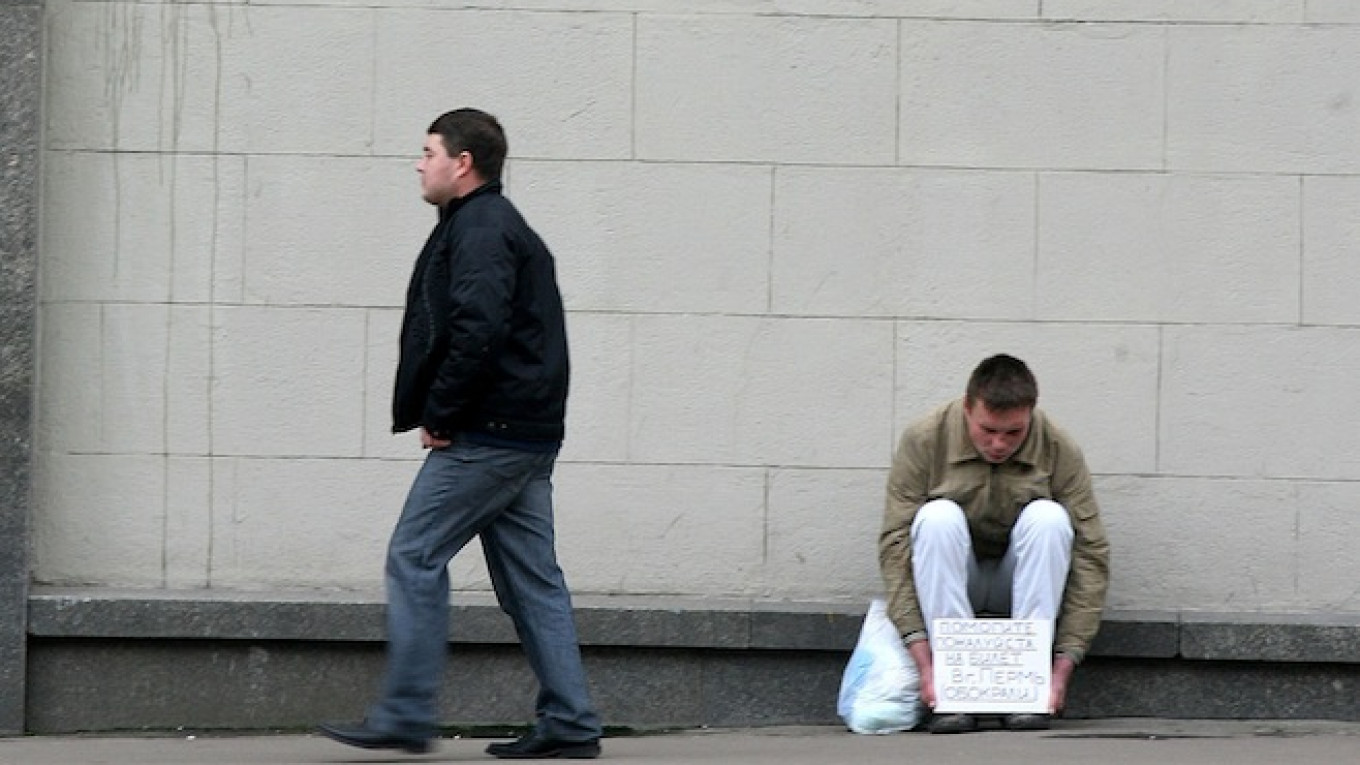Several suspects have been detained in connection with an alleged human trafficking scheme that saw three amputees forced to beg for change to raise funds for an organized crime group in the Moscow region.
Three men were forced to panhandle a minimum of 3,000 rubles ($85) each day for the criminal group, under threat of brutal beatings, police in Mytishchi, a suburb of Moscow, announced in a statement Tuesday.
One of the three victims is missing both legs. The other two are missing one leg each.
The suspects "took advantage of the helpless state of the victims, stole their identification documents and their artificial legs, used physical and psychological coercion and forced them to engage in forced begging near large shopping centers and other public places," according to the statement.
The number of individuals detained in connection with the suspected crime ring was not disclosed, but two of the suspects in the case were identified as Moldovan nationals.
An investigation is currently under way, and the suspects face up to five years behind bars if convicted on slave-labor charges.
Human rights activists have warned of a surge in forced begging cases in recent years, often involving victims with physical disabilities, who traffickers believe are lucrative for their capacity to elicit pity from passer-by.
It is not unusual to see amputees in the Moscow Metro system meandering through trains and stations on makeshift scooters, asking commuters for spare change.
Reports by anti-trafficking organizations like La Strada and international bodies like the United Nations and the Organization for Security and Cooperation in Europe have shown that traffickers tend to prey on victims who already suffer from physical disabilities. But the same organizations report cases of traffickers inflicting injuries — including amputations — on their victims to both keep them in line and make their work more effective.
The U.S. State Department's Trafficking in Persons Report for 2014 slammed the Russian government for not doing enough to cut down on trafficking cases and prosecute the groups responsible for such schemes.
According to that report, Russia demonstrated "low political will to address human trafficking," with the lack of any single authority to spearhead anti-trafficking efforts and an "absence of funding in the federal and local budgets for trafficking prevention and victim prevention."
See also:
To Limit Russian Meddling, Astana Entices Kazakhs from Abroad
Contact the author at a.quinn@imedia.ru
A Message from The Moscow Times:
Dear readers,
We are facing unprecedented challenges. Russia's Prosecutor General's Office has designated The Moscow Times as an "undesirable" organization, criminalizing our work and putting our staff at risk of prosecution. This follows our earlier unjust labeling as a "foreign agent."
These actions are direct attempts to silence independent journalism in Russia. The authorities claim our work "discredits the decisions of the Russian leadership." We see things differently: we strive to provide accurate, unbiased reporting on Russia.
We, the journalists of The Moscow Times, refuse to be silenced. But to continue our work, we need your help.
Your support, no matter how small, makes a world of difference. If you can, please support us monthly starting from just $2. It's quick to set up, and every contribution makes a significant impact.
By supporting The Moscow Times, you're defending open, independent journalism in the face of repression. Thank you for standing with us.
Remind me later.






